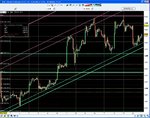bbmac
Veteren member
- Messages
- 3,584
- Likes
- 789
Thank you for the replys. A provocative post usually illicits such, lol.
TheBramble: I appreciate the difference between 'willing' and 'able' in respect of responses to the question about describing one's own trading 'ede.'
rols/hoggums: I find it hard to accept that if someone posesses a trading egde, that it can't be put into words, (even if that form of words is generic and no revealing of any proprietary knowledge. For example a contact of mine answered the question by saying ' Exploiting the inconsistencies in option pricing via a proprieatry algorithm' Ie from that we can all kind get what he;'s up too, but no proprietary knowledge is revealed.
fibonelli: see the above
dbphoenix: yes, I appreciate your point.
TheBramble: My intention in starting the thread was really just to try and ascertain how many traders could neatly and succinctly sum up their own trading edge, and secondly, to see how many users of the boards would respond. I certainly didn't expect anyone to reveal any proprietary knowledge. Whilst I have posted some explanations as to my particular technical trading edge, that works for me, one of the purposes of sharing knowledge is to gain knowledge, and this has been my general experience.
I agree with you that no real or useful conclusions can be drawn from the response to the thread.
TheBramble: I appreciate the difference between 'willing' and 'able' in respect of responses to the question about describing one's own trading 'ede.'
rols/hoggums: I find it hard to accept that if someone posesses a trading egde, that it can't be put into words, (even if that form of words is generic and no revealing of any proprietary knowledge. For example a contact of mine answered the question by saying ' Exploiting the inconsistencies in option pricing via a proprieatry algorithm' Ie from that we can all kind get what he;'s up too, but no proprietary knowledge is revealed.
fibonelli: see the above
dbphoenix: yes, I appreciate your point.
TheBramble: My intention in starting the thread was really just to try and ascertain how many traders could neatly and succinctly sum up their own trading edge, and secondly, to see how many users of the boards would respond. I certainly didn't expect anyone to reveal any proprietary knowledge. Whilst I have posted some explanations as to my particular technical trading edge, that works for me, one of the purposes of sharing knowledge is to gain knowledge, and this has been my general experience.
I agree with you that no real or useful conclusions can be drawn from the response to the thread.

